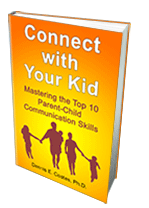As I write this, Vladimir Putin has decided that he wants Ukraine to become a part of Russia. The people of Ukraine don’t want this; they want to remain their own nation, separate from Russia. But rather than enter into peaceful relations with Ukraine, Putin has decided to bomb Ukraine into submission. The lives of thousands of people, including soldiers, women and children, have ended in the violence. Millions of Ukrainians are fleeing the country, leaving their destroyed communities to find shelter in other countries.
Can you imagine how challenging, how adverse this must be for the victims of this war? But somehow they have to continue living, surviving these awful circumstances.
Here in the U.S., we have our life challenges, but nothing like this. Still, no adult, wherever they are, lives without difficulties. I sometimes refer to these unwanted challenges as “the surprise of the week.” I also say, though I’m not fond of saying it, “Life is hard.”
- Conflicts in marriage, leading to divorce
- You get laid off because of cutbacks
- You slip on ice, causing serious injury that needs surgery
- A close family member dies and while grieving, you have to help with final arrangements
- You are diagnosed with throat cancer
- Bad winter storms destroy half of your landscape plantings
- A close lightning strike fries your home electric circuits
- Your credit card is hacked
- Your beloved pet gets a tumor, ending its life
- And on and on…
These are typical adversities that nearly everyone has to live through. Most of them have happened to me. How about you? I suspect you could add several more to the list. It’s true: Life is hard. And we have to deal with it and move on.
Why am I saying this?
Because your child will have to deal with their own special challenges when they’re an adult. You want them to have the problem solving skills and character strengths to deal with adversity and move on. Without your help.
When bad things happened to you, you didn’t give up and tearfully turn to your parents to fix things for you. You dealt with it and moved on. That’s what adults do. That’s what you want your adult child to do.
There’s a secret to helping your child develop the problem solving skills and the character strengths they will need. These are behavior patterns, meaning their brains can wire circuits for the behaviors they will need. The skills and strengths needed in life are developed through repetition, hopefully while a person is young. Growing up is different for every child. For your child, growing up can be a time of getting smarter and stronger as a person.
In other words, to become happy, successful, independent adults, kids need countless opportunities to deal with challenges while they are young. It’s a horrid mistake to routinely fix things for your child, give them the answer, and work the solution. It’s distressing to see your child struggling, but to become strong adults, they need to be encouraged to work things out for themselves.
What helps: expressing your empathy, listening, asking questions that get them to think, and encouraging them to follow through on what they decide to do. Taking this approach, year after year until they’re ready to leave home will prepare them for life and dealing with its many unavoidable challenges.
I like what Jonathan Haidt and Greg Lukianoff said in The Coddling of the American Mind: It’s about preparing your child for the road, not clearing the road for your child.
I describe the skills you need to be there for your child in my book, Connect wit Your Kid: Mastering the Top 10 Parent-Child Communication Skills. 

